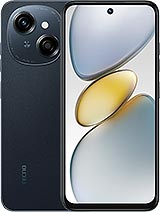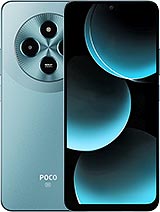Poco M7 alternatives
Tap above to see alternatives.
Vivo Y18t 4G alternatives
Tap above to see alternatives.
Vivo Y18t 4G

Vivo Y18t 4G
-
Unisoc T612
12 nm
-
5000 mAh
15W
-
6.56"
720 x 1612 pixels
-
50 MP
1080p@30fps
-
Specs

2x2.2 GHz Cortex-A78
6x1.95 GHz Cortex-A55
2x1.8 GHz Cortex-A75
6x1.8 GHz Cortex-A55
8GB 128GB (UFS 2.2)
f/1.8, (wide), 1/2.96", PDAF
f/1.8, (wide), PDAF
Auxiliary lens
f/2.0, (wide)
f/2.0, (wide)
SIM1: Nano, SIM2: Nano
SIM1: Nano, SIM2: Nano
16 5G bands
n1, n2, n3, n5, n7, n8, n20, n26, n28, n38, n40, n41, n48, n66, n77, n78
In this performance comparison, the Poco M7 with its Qualcomm Snapdragon 4 Gen 2 (4nm) performs better than the Vivo Y18t 4G with the Unisoc Unisoc T612 (12nm), thanks to superior chipset efficiency.
Poco M7 offers 2 years of OS updates, while Vivo Y18t 4G does not have confirmed OS update information. Poco M7 receives 4 years of security updates, while Vivo Y18t 4G does not have confirmed security update information.
Both Poco M7 and Vivo Y18t 4G use LCD screens. In terms of smoothness, Poco M7 offers a higher 120 Hz refresh rate, ensuring fluid scrolling and animations. Vivo Y18t 4G also boasts a brighter screen with 840 nits of peak brightness, enhancing outdoor visibility. Both phones have the same screen resolution.
Poco M7 comes with a larger 5160 mAh battery, which may offer longer usage on a single charge. Poco M7 also supports faster wired charging at 18W, compared to 15W on Vivo Y18t 4G.
Vivo Y18t 4G offers better protection against water and dust with an IP54 rating.
- Vivo Y18t 4G – Check price here
¹ Scores can vary even with the same chipset due to RAM, thermals, and software optimization.










